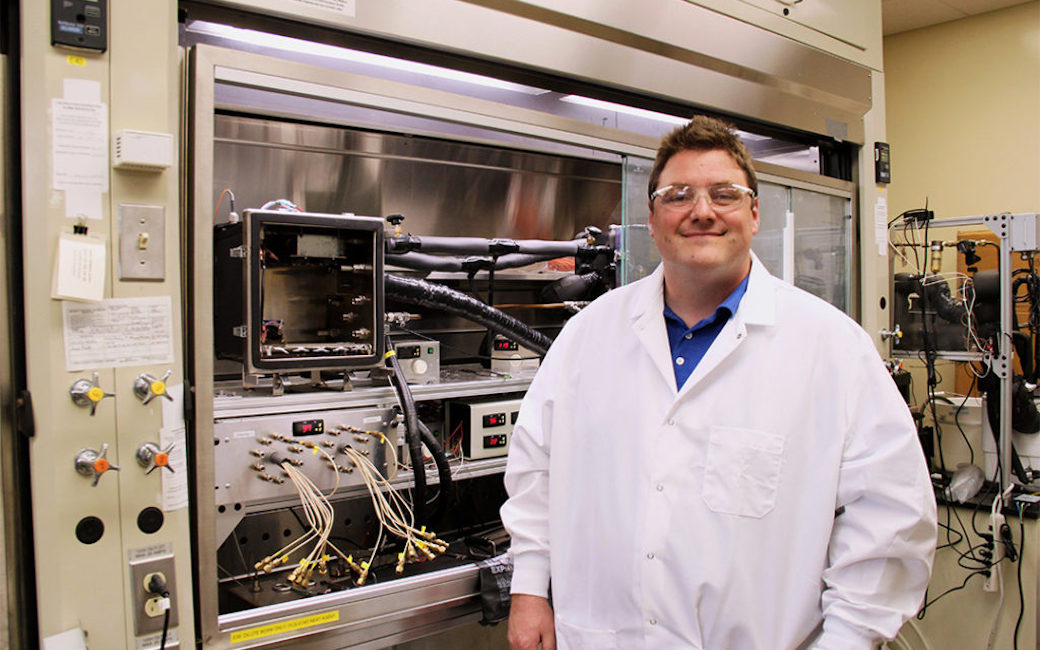Alum works to decontaminate military equipment, soldiers’ possessions
Joseph Myers’ process uses hot air as alternative to more destructive decontaminants
By Megan Bradshaw on July 29, 2019

Joseph Myers ‘05, a chemist for the U.S. Army Combat Capabilities Development Command’s Chemical Biological Center, has been the primary investigator of an alternative decontamination process for military items exposed to chemical warfare agents.
Chemical Hot Air Decontamination (CHAD) removes toxic contaminants from equipment and personal items using a stream of humidified air passing through a small enclosure. The process takes 24–72 hours, according to Myers—a chemistry major while at TU—, and removes at least 99.9% of contamination.
Other current decontamination methods use harsh chemicals, like bleach, that can damage or destroy equipment like sensitive electronics. Myers hopes the process could be refined to the point where important assets could be cleaned and reissued.
The process can also help console the families of fallen soldiers by making their personal effects safe to return to loved ones.
Read the full article
MORE INFORMATION
Studying chemistry at TU
Towson University’s chemistry programs prepare students for a range of careers in industry, government and education as well as provide the solid academic foundation needed for graduate study. Students in the professional track are eligible for American Chemical Society (ACS) certification—widely recognized throughout industry, government and education as a standard of excellence
- Learn more about the chemistry major.
- Request information about Towson University.
This story is one of several related to President Kim Schatzel’s priorities for Towson University: TU Matters to Maryland.